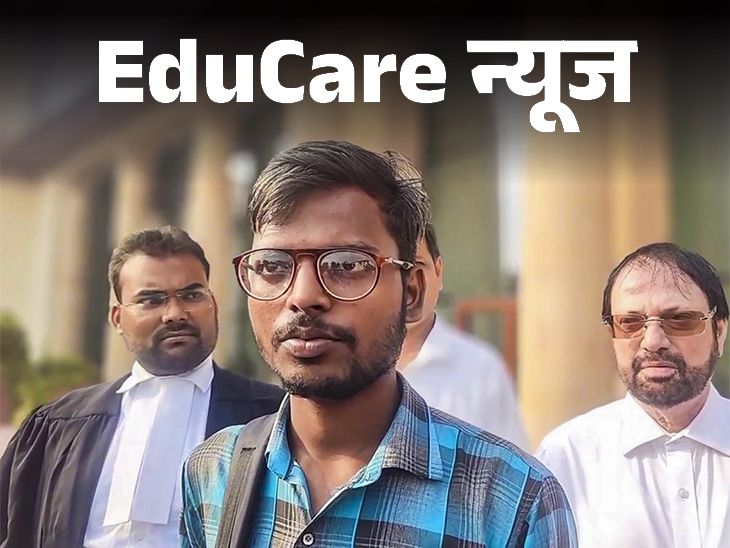Career Muzaffarnagar Dalit Scholarship for IIT Dhanbad Student; UP CM Yogi Adityanath
Now, the Uttar Pradesh government will bear the entire expenses of Dalit student Atul Kumar from Muzaffarnagar studying at IIT Dhanbad. For this, Atul will receive a scholarship from the Department of Social Welfare.
On September 30, the Supreme Court had ordered IIT Dhanbad to allow admission to Atul Kumar. In fact, Atul was not able to collect the institute’s admission fee of Rs 17,500 on time. Due to this, his admission was cancelled.
The Supreme Court said: Admission should not be canceled on account of non-payment of fees on time. After this, Atul had filed a petition in the Supreme Court. The court had delivered its verdict in favor of Atul. The court said Atul qualified the JEE Advanced exam and was admitted on the basis of merit. Due to non-payment of fees on time, the admission of a truly deserving student should not be cancelled.
A supernumerary seat was created on the orders of the Supreme Court Atul Kumar is a Dalit student from Khatauli in Muzaffarnagar district of Uttar Pradesh. His father works as a tailor in the village and earns around Rs 450 per day.
This time, Atul appeared for the JEE Advanced exam in which his category rank was 1455. According to the rank, he was supposed to take admission in IIT Dhanbad but could not deposit the fee of Rs 17,500 on time.
Atul’s father Rajendra Kumar said, “A person from the village had asked to give money, but did not give it on time. It took 16 hours 45 minutes to arrange the rates. By the time the data was uploaded to the website, the time limit had expired.
After that, the case was taken to the Supreme Court. The court ruled that a supernumerary seat should be created for Atul at IIT Dhanbad so that it does not have any impact on the students currently studying there. The court said: “Talented students should not be discouraged. I can’t let such talent go. CJI DY Chandrachud told the student present in court, good luck, do it well.
In its ruling, the court ordered to provide all facilities, including hostel, to the student. The court said this would have no impact on students admitted to IIT Dhanbad, but rather students would be admitted on additional seats.
Atul admitted under special provision of SC During the hearing, the Supreme Court said, “Atul’s admission was stopped only because he did not deposit the fee. The petitioner Atul Kumar comes from a marginalized group and has done everything possible to gain admission. So it cannot stay like this.
Section 142 gives the court the power to resolve such cases. The court gives its verdict that the student should be admitted to IIT Dhanbad. He should be admitted in the same batch in which he would have been admitted if he had deposited the fee on time.
Article 142 has already been used several times
March 2024 The bench of Justice CT Ravikumar had dismissed a rape case invoking Section 142. In this, the accused had an affair with his landlady who was 10 years older than him. In 2019, they both got married in the temple and began living together.
But the accused refused to marry the woman in court. The woman then filed a complaint against him for rape. The Supreme Court had declared in this case that the woman was not innocent in this case. She was 10 years older than the boy and an intelligent woman.
October 2023 Having failed to get the alimony amount from a man named Varun Gopal, his wife had filed a petition in the Supreme Court. In this case, the Supreme Court, using Section 142, held that the maintenance of the wife should be paid by selling the ancestral property of Varun Gopal, i.e. his 6 shops.
May 2023 In one case, the Supreme Court, with the consent of a married couple, resolved all other issues between them and granted them a divorce. In fact, both husband and wife had filed many cases against each other like divorce, alimony, dowry harassment. Although both were willing to compromise, both parties could not reach any decision, causing the divorce case to stall.
Bhopal gas tragedy case In 1991, the Supreme Court had ordered Union Carbide Corporation to pay $470 million in compensation to victims of the Bhopal gas tragedy.

